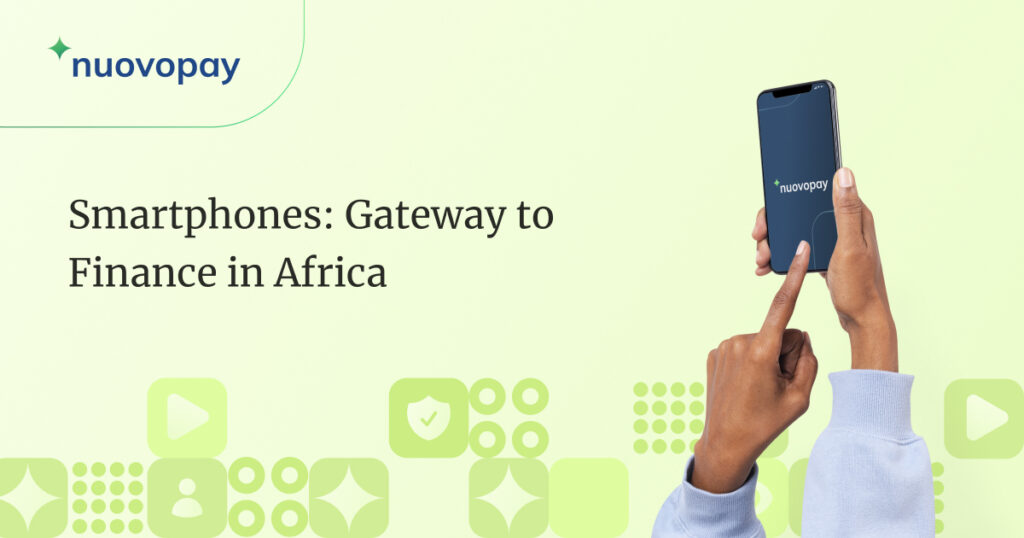Smartphones have surpassed their role as mere means of communication to become catalysts for transformative change, particularly in regions like Africa. This shift is held up by the increasing penetration of smartphones across the continent coupled with the emergence of innovative financial services and digital solutions.
Africa, with its diverse population, faces unique challenges and opportunities in the domain of technology and development. Smartphones have emerged as powerful tools for addressing these challenges and unlocking new opportunities for growth and progress.

In this article, we’ll deal with how smartphones are not just technological gadgets; they are catalysts for social and economic transformation in Africa, driving progress, empowerment, and inclusion across the continent.
Importance of Smartphones in Africa’s Development
The importance of smartphones in Africa’s development cannot be overstated. These handheld devices serve as gateways to a wide range of services and opportunities, ranging from financial inclusion to education, healthcare, and entrepreneurship.
In Africa, the demand for smartphones has surged in recent years due to several compelling reasons, each contributing to the device’s indispensability in the region’s development. Some of these include:
Financial Services: Mobile Banking, Digital Payments, Microfinance
Smartphones have expanded access to financial services in Africa, particularly in regions with limited or absent traditional banking infrastructure. Mobile banking apps and digital payment platforms allow individuals to manage their finances, make transactions, and access credit and savings facilities conveniently from their smartphones. Moreover, microfinance institutions leverage mobile technology to extend financial services to underserved populations, improving financial inclusion and empowerment.
Business Opportunities: E-commerce, Digital Entrepreneurship
Smartphones empower entrepreneurs and small businesses across Africa by providing access to digital marketplaces and e-commerce platforms. Digital entrepreneurship is on the rise as individuals leverage smartphones to start and scale businesses, reach new customers, and participate in the digital economy. From selling products and services online to offering digital solutions and services, smartphones are fueling a wave of innovation and economic growth in the region.
Educational Development: Access to Online Learning Resources
Smartphones play a vital role in addressing the educational challenges faced by many African countries. With access to online learning resources, educational apps, and e-books, smartphones enable students to supplement their traditional education, access educational content anytime, anywhere, and engage in interactive learning experiences. This narrows the educational gap and empowers individuals with knowledge and skills essential for personal and professional growth.
Healthcare: Telemedicine and Health Information Services
Smartphones are revolutionizing healthcare delivery in remote and underserved areas where access to healthcare facilities is limited. Telemedicine services allow patients to consult with healthcare providers remotely, access medical advice, and receive diagnoses and prescriptions through their smartphones. Additionally, health information services and mobile health apps provide valuable health-related information, preventive care resources, and support for managing chronic conditions, improving health outcomes, and promoting wellness in the community.
Social Connectivity: Communication and Networking Opportunities
Smartphones serve as an important tool for social connectivity and networking in Africa, facilitating communication and collaboration among individuals, communities, and organizations. Social media platforms, messaging apps, and networking tools enable people to stay connected with friends and family, share information, exchange ideas, and build relationships across geographical boundaries.
Smartphone Current Status of Adoption and Ownership in Africa
In Africa, the revenue generated in the smartphone market is projected to reach an impressive USD 41.4 billion in 2024. For an estimate, China, which has the highest revenue, touches USD 105.5 billion. The African market is expected to experience an annual growth rate of 6.87%.[1]
Nigeria has the highest smartphone penetration rates in the continent. While urban centers typically have higher smartphone penetration rates due to better infrastructure and access to services, there is a growing trend of smartphone adoption in rural areas as well.
Country-wise Segregation of Digital Development
In Africa, digital development varies significantly across countries, with some nations leading in smartphone adoption and digital innovation while others face challenges in building strong digital infrastructure.[2]
Leading Countries in Smartphone Adoption and Digital Development
- Nigeria: With a population of over 200 million people, Nigeria stands out as one of the largest and fastest-growing markets for mobile phones in Africa. The country has witnessed a surge in smartphone adoption. Nigeria’s vibrant tech ecosystem, fueled by a young and tech-savvy population, has contributed to the growth of digital innovation and entrepreneurship, making it a key player in Africa’s digital economy.
- South Africa: South Africa boasts relatively high levels of smartphone penetration and internet connectivity. With a population of around 60 million people, South Africa has a mature telecommunications sector and a well-established digital infrastructure that supports a wide range of digital services, including mobile banking, e-commerce, and online education. However, access to digital services remains unequal, with disparities between urban and rural areas and socioeconomic groups.
- Egypt: With over 100 million people, Egypt is one of Africa’s largest and most populous countries. The country has experienced significant growth in smartphone adoption, driven by factors such as urbanization, youth demographics, and increasing internet penetration.
Contrasting Countries Facing Challenges in Digital Infrastructure
- Democratic Republic of the Congo (DRC): Despite its vast natural resources and large population, the Democratic Republic of the Congo (DRC) faces challenges in digital infrastructure development. Limited internet connectivity, inadequate telecommunications infrastructure, and low smartphone penetration rates hinder the country’s progress in harnessing the benefits of digital technology for development.
- Central African Republic (CAR): The Central African Republic (CAR) faces similar challenges in digital infrastructure development due to political instability and economic constraints. Limited internet access, lack of investment in telecommunications infrastructure, and low smartphone penetration rates hinder the country’s ability to leverage digital technology for economic and social development.
While some African countries are making significant strides in smartphone adoption and digital development, others continue to face challenges in building strong digital infrastructure and promoting widespread access to digital services. Addressing these challenges and investing in digital infrastructure is essential for unlocking the potential of digital technology to drive economic growth, social inclusion, and sustainable development across the continent.
Device Financing as a Catalyst
Device financing refers to the practice of spreading the cost of purchasing a smartphone over time, usually through installment plans or loans. This approach makes smartphones more affordable and accessible to individuals who may not have the upfront funds to purchase a device outright. Device financing programs have emerged as a powerful tool for promoting smartphone adoption and driving financial inclusion in Africa.
Risks Associated with Device Financing
As Africa continues to embrace device financing, addressing the associated risks for financial institutions, telecom operators, and consumers is essential. These risks include device theft, fraud, and non-payment. By implementing robust risk management strategies and leveraging advanced device financing risk management solutions, stakeholders can mitigate these risks and promote the success of device financing initiatives across the continent.
Closing Lines
While device financing is critical for promoting smartphone adoption and driving economic development in Africa, it must be accompanied by a device financing risk management platform to manage risks effectively.
NuovoPay is the ideal partner in this journey. NuovoPay is a leading Device Financing Risk Management (DFRM) platform that facilitates the necessary tools to manage risks effectively. By leveraging NuovoPay’s unique features, you can ensure a secure, flexible, and efficient device financing experience.


